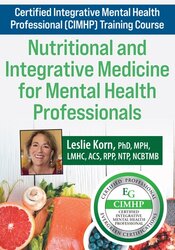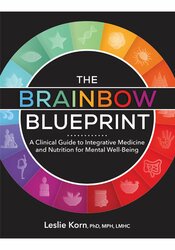How to Integrate Nutrition into Mental Health Care

Mental health care is evolving, and an integrative approach combining psychotherapy and nutritional therapy is gaining momentum. Nutrition profoundly impacts brain health, emotional regulation, and overall mental well-being. This blog delves into the fundamentals of nutritional strategies tailored for therapists and clinicians aiming to enhance client outcomes.
The Connection Between Nutrition and Mental Health
Many clients struggle with poor-quality diets due to food insecurity, lack of nutritional knowledge, or unhealthy habits. As a therapist, you can support clients by:- Educating them on the impact of food choices on mental health.
- Highlighting key deficiencies (e.g., low magnesium or B12) that contribute to anxiety, depression, and cognitive decline.
- Addressing side effects of pharmaceuticals that disrupt nutrient absorption, such as SSRIs or statins.
A Holistic, Personalized Approach
Every individualãs nutritional needs differ due to factors like genetics, cultural background, and health conditions. Personalized care, which considers these factors, is essential. For instance:- Clients from cold climates may benefit from high-fat diets, while tropical populations might thrive on plant-based nutrition.
- Trauma survivors often exhibit disrupted biological rhythms and digestion, requiring tailored interventions.
Practical Steps for Clinicians
- Nutritional Assessment
- Begin with a basic food diary where clients document their meals, moods, and digestive responses.
- Analyze patterns such as skipped meals, excessive sugar or caffeine intake, and hydration levels.
- Educating on Food Quality
- Teach clients to differentiate healthy fats (e.g., omega-3s) from inflammatory trans fats.
- Promote whole, minimally processed foods and eliminate pro-inflammatory options like refined sugars and additives.
- Managing Mood Through Diet
- Encourage regular meals to stabilize blood sugar and prevent mood swings.
- Incorporate foods rich in antioxidants, essential fatty acids, and fibers to reduce inflammation.
- Improving Gut-Brain Health
- Address digestive issues that commonly co-occur with mental health conditions.
- Introduce probiotics (e.g., fermented foods) and prebiotics (e.g., fibers) to nourish the gut microbiome, which influences neurotransmitter production.
Certified Integrative Mental Health Professional (CIMHP) Training Course

In this comprehensive certification training, Dr. Leslie Korn guides you step-by-step through the process of integrating safe, affordable and evidence-based holistic approaches that will help your clients achieve optimal health and wellness while alleviating symptoms of depression, anxiety, bipolar disorder, ADHD, body dysmorphia, OCD, addictions, and more. Upon completion, youãll be immediately eligible to become a Certified Integrative Mental Health Professional (CIMHP).
The Brainbow Blueprint: A Clinical Guide to Integrative Medicine and Nutrition for Mental Well Being

Based on over four decades of research and clinical practice, this book is the first of its kind to combine the fields of psychotherapy, somatics, nutrition, biology, herbal medicine, and spirituality to address the needs of the whole person. Accessible to both beginning and advanced practitioners, the methods in this book harmonize and overlap with each other ã focusing on integration ã to help clients get in touch with themselves so they can better manage symptoms of depression, anxiety, OCD, insomnia, chronic pain, substance use disorder, digestive issues, and more. Filled with step-by-step handouts, worksheets, adherence strategies, culinary medicine recipes, and clinical assessments, The Brainbow Blueprint is the comprehensive roadmap you need to incorporate the emerging and revolutionary field of integrative medicine and nutrition into your practice.
Meet the Expert:
Leslie Korn, PhD, MPH, LMHC, ACS, FNTP, BCTMB is a renowned integrative medicine clinician and educator specializing in the use of nutritional, herbal and culinary medicine for the treatment of trauma and emotional and chronic physical illness. She is known for her dynamism and humor providing clients effective alternatives to psychotropics. She completed her graduate education in the department of psychiatry and public health at Harvard Medical School and her life training in the jungle of Mexico where she lived and worked alongside local healers for over 25 years. She directed a naturopathic medicine and training clinic facilitating health, culinary and fitness retreats. She is licensed and certified in nutritional therapy, mental health counseling, and bodywork (Polarity and Cranial Sacral and medical massage therapies) and is an approved clinical supervisor. She introduced somatic therapies for complex trauma patients in outpatient psychiatry at Harvard Medical school in 1985 and served Acupuncture and faculty at National College of Naturopathic Medicine.
Learn more about her educational products, including upcoming live seminars, by clicking here.
Learn more about her educational products, including upcoming live seminars, by clicking here.



